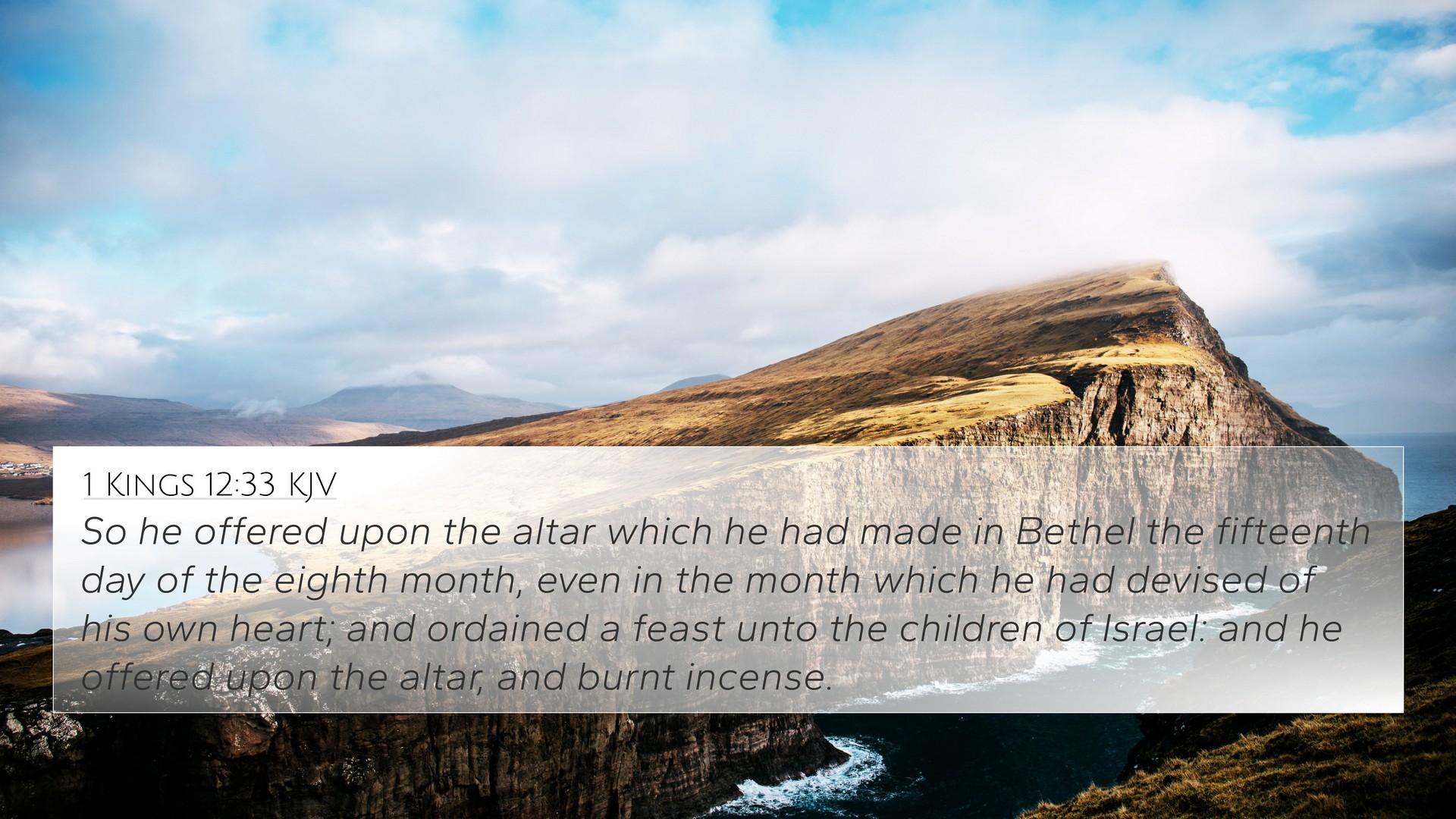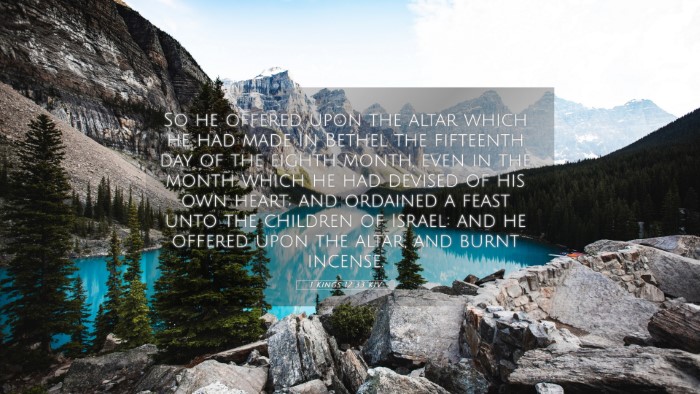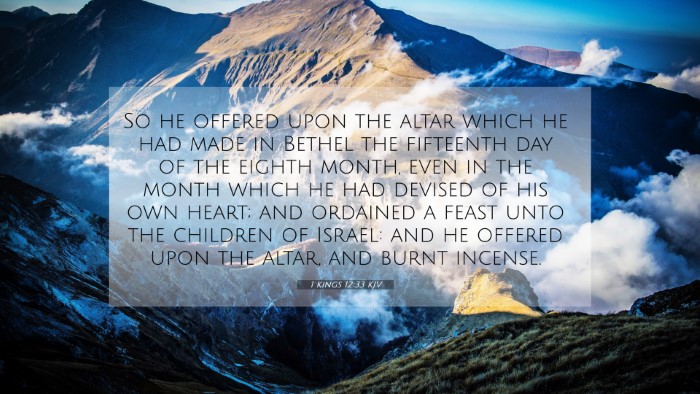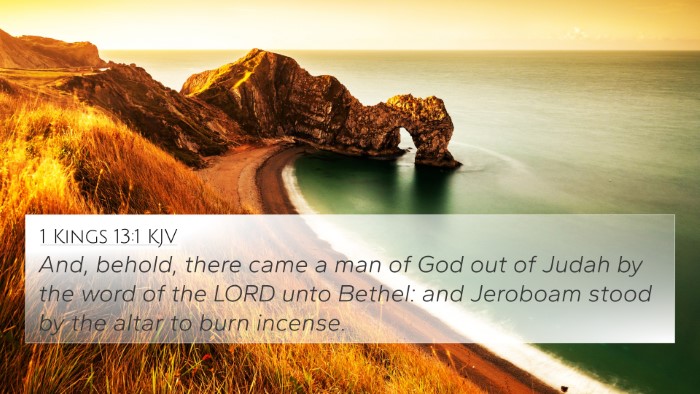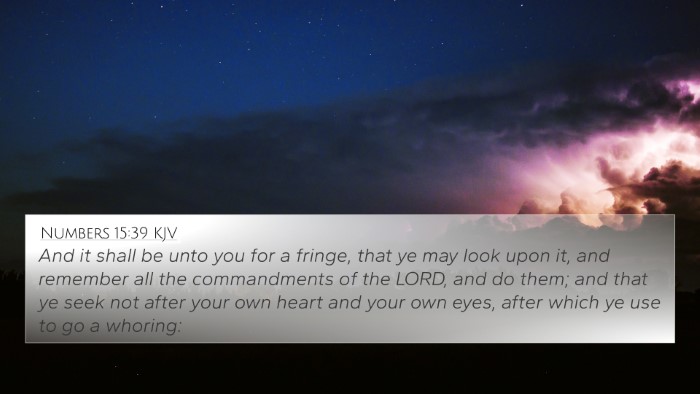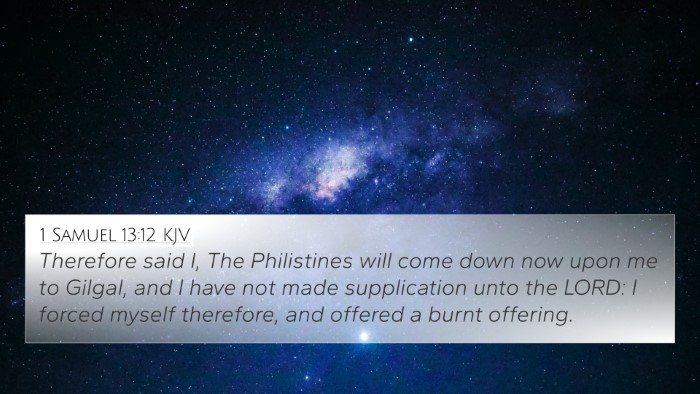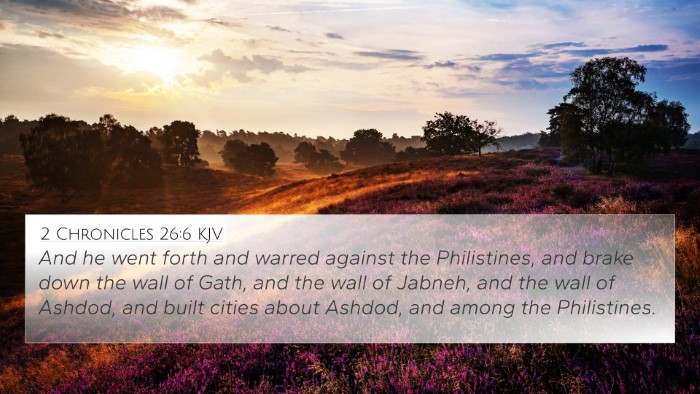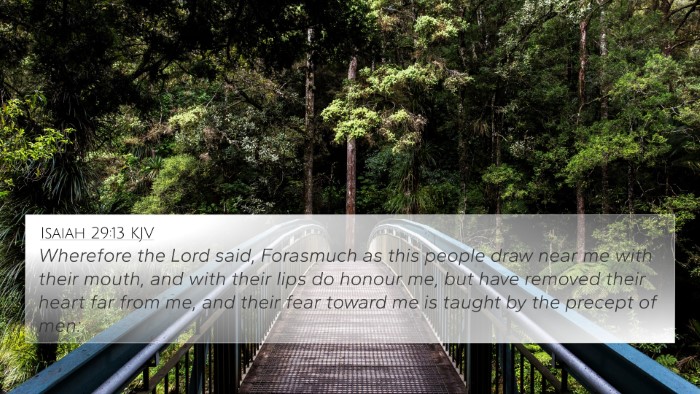Meaning and Interpretation of 1 Kings 12:33
In 1 Kings 12:33, we find King Jeroboam taking measures to secure his reign over Israel after the division from Judah. This verse captures the essence of his actions, which were primarily motivated by fear of losing his kingship if the people were to return to Jerusalem for worship. A detailed exploration of this verse reveals multiple layers of its significance through public domain commentaries.
Contextual Background
The context of this verse is crucial for understanding its implications. After Solomon's reign, the kingdom was divided into two: the northern kingdom of Israel led by Jeroboam and the southern kingdom of Judah led by Rehoboam. Jeroboam's administration sought to establish a separate identity and cult for the northern tribes, which is central to understanding the subsequent actions described in this verse.
Summary of 1 Kings 12:33
The verse states, "So he offered upon the altar which he had made in Bethel the fifteenth day of the eighth month, even in the month which he had devised of his own heart; and ordained a feast unto the children of Israel: and he offered upon the altar, and burnt incense."
Commentary Insights
The commentaries of Matthew Henry, Albert Barnes, and Adam Clarke provide profound insights into this verse.
Matthew Henry's Commentary
Matthew Henry highlights Jeroboam's strategic but misguided decision to create a new religious system that would prevent his subjects from returning to Jerusalem. He notes that Jeroboam's actions were not merely political but also spiritually detrimental as they encouraged idolatry. Henry emphasizes that Jeroboam devised a feast which mimicked the genuine worship established by God, yet deviated from it thoroughly.
Albert Barnes' Commentary
Albert Barnes elaborates on Jeroboam's fear of losing control. He points out that the king’s initiative of setting up altars in Bethel was an effort to avoid the risk of unifying the people through the pilgrimage to Jerusalem. Barnes critiques these actions as attempts to create a parallel system of worship that was entirely unauthorized and contrary to God's command.
Adam Clarke's Commentary
Adam Clarke provides a thorough analysis of the reference to the “fifteenth day of the eighth month,” likening it to the Feast of Tabernacles, albeit with significant alterations. He underscores that Jeroboam was crafting a feigned religion that mirrored the true worship practices but ultimately led the people astray from the true God.
Thematic Connections and Cross-References
This verse is an example of how leaders can influence faith practices and delineate worship. Below are key cross-references that help deepen the understanding of this verse and showcase their interconnections:
- 1 Kings 12:28-29: Jeroboam's instigation of idol worship with golden calves.
- 2 Chronicles 11:13-14: Levites leaving Israel to maintain true worship.
- Leviticus 23:34-36: The biblical foundation for the actual Feast of Tabernacles.
- Exodus 20:4: God's command against making graven images, which Jeroboam violated.
- 1 Kings 13:33-34: The eventual downfall of Jeroboam's house due to idolatry.
- John 4:21-24: Jesus’ teaching on true worship beyond location.
- 2 Kings 17:7-23: The long-term consequences of Israel’s idolatry.
- Hosea 8:11-14: Prophetic warnings against Israel’s misplaced worship.
- Matthew 15:9: Jesus condemning worship that is based on human traditions.
- Romans 1:25: The danger of exchanging the truth of God for lies.
Concluding Thoughts
In summary, 1 Kings 12:33 serves as a stark reminder of the dangers that arise from leaders' misinterpretations of faith and worship. The commentaries reviewed emphasize Jeroboam's failure not only as a political ruler but also as a spiritual guide. This verse illustrates the importance of adherence to God’s commands and the repercussions of deviating from divine instruction.
Practical Application
The examination of this scripture encourages readers to engage in serious reflection regarding their own practices of worship. It underscores the necessity to ensure that one's faith is rooted in the scriptures rather than succumbing to cultural or political pressures that may lead to a distorted understanding of divine worship.
Further Study Resources
For those interested in exploring Bible verse cross-references, there are various tools available such as Bible concordances and cross-reference guides. Engaging in cross-referencing Bible study methods and utilizing comprehensive Bible cross-reference materials can significantly enhance one’s understanding of scriptural connections and thematic insights throughout both the Old and New Testaments.
